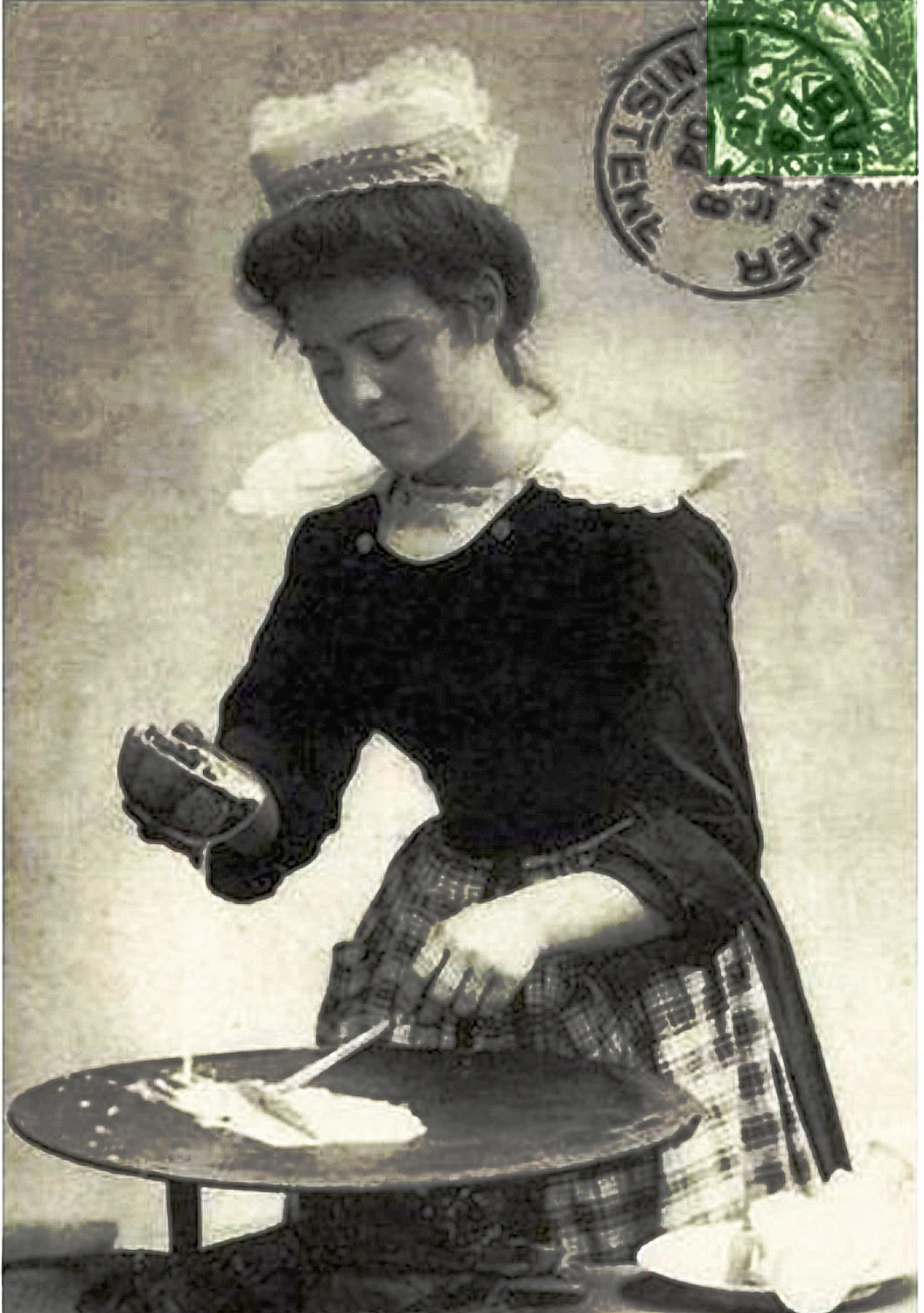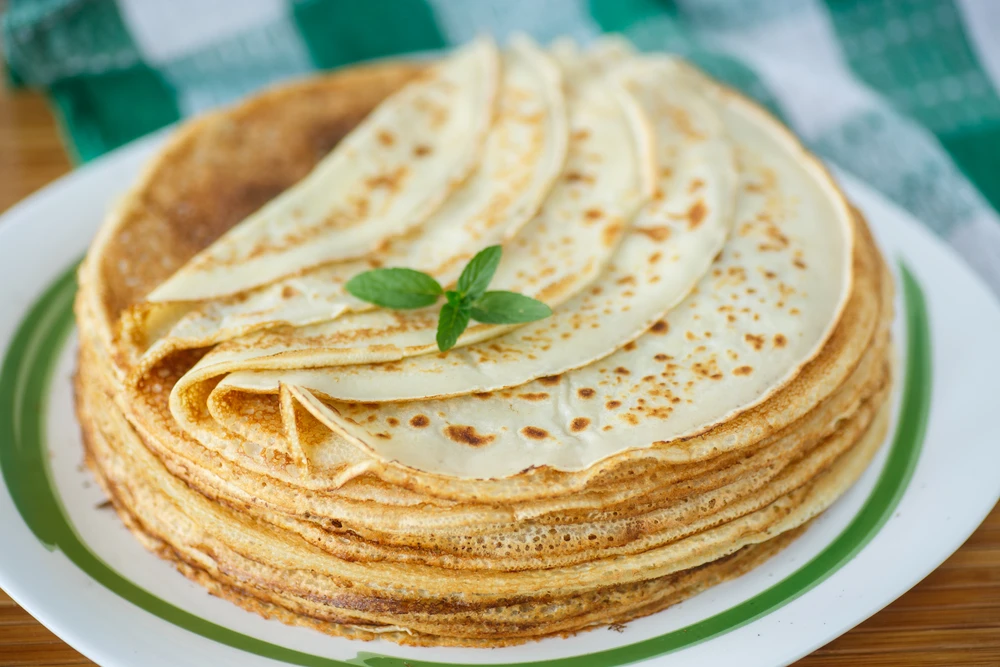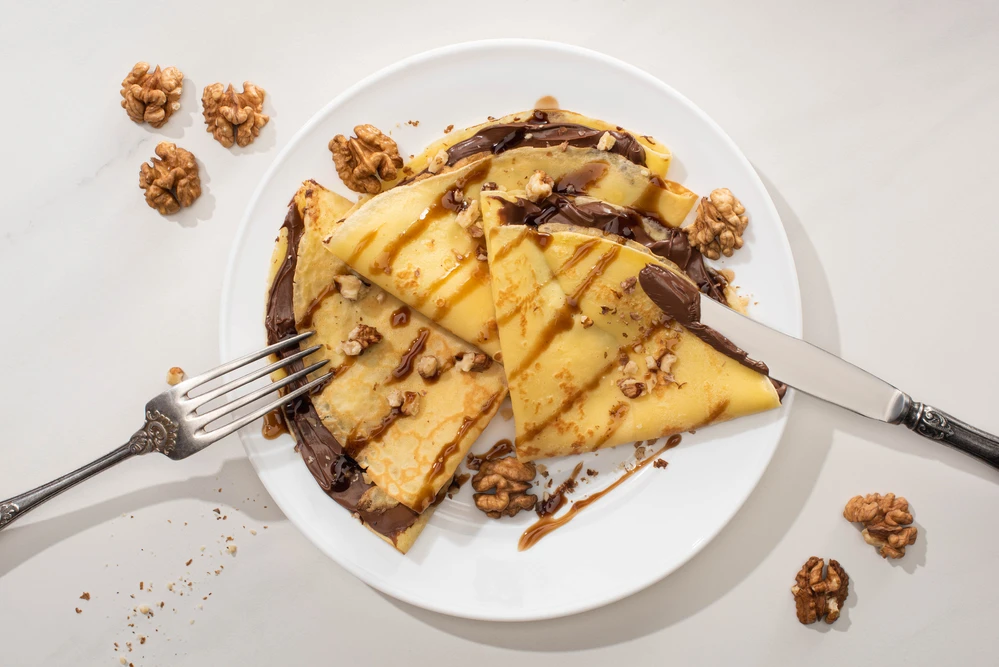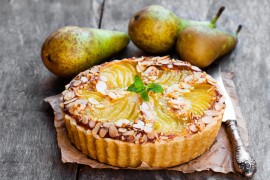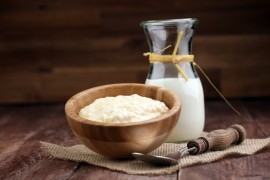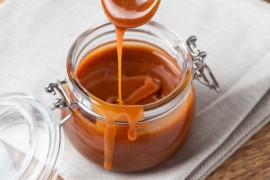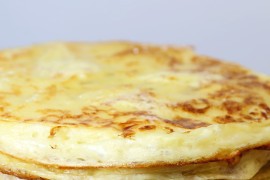Crêpes: a French classic with a long history
A Breton mother makes pancakes around 1900.
A Latin word and a Breton specialty
The French word "crêpe" comes from the Latin "Crispus", meaning crispy. Crêpes are as old as the hills. In France, you'll find them in every region, but it's in Brittany that they're eaten the most. In fact, it's in this region that the oldest crepe pan in France has been found, which proves just how old the Breton crepe is! You can enjoy them sweet or savoury (and made with buckwheat) in dedicated restaurants known as crêperies. There are an estimated 4,000 in France, and 2,000 in Brittany alone. In Paris, the old Breton district of Montparnasse is where you'll find the most. Still in Brittany, crêpes were a cheap way to eat and reuse leftovers, since you could put anything you wanted in a crêpe.
De bonnes crêpes. Image choisie par monsieurdefrance.com : rawlik via depositphotos.
At Candlemas, Mardi Gras or... any other time!
You can eat them whenever you like, but traditionally they're eaten around Candlemas (40 days after Christmas, so around February 2). To make sure you have money all year round, in some families it's traditional to blow the pancakes with your right hand, holding a coin in your left (I've heard it's best with a gold coin). If you succeed, it's a sign of wealth for the coming year. It's worth practicing! It's also traditional to blow pancakes on Mardi-Gras, just before Lent, to finish off the eggs and milk that you won't be able to eat for 40 days during Lent. In short! Pancakes are good! Eat them!
Want to try thicker crêpes? Why not try vaûtes, an absolutely delicious version from Lorraine.
How to make an easy, foolproof crêpe batter
Ingredients (for about 20 crêpes)
For about twenty crêpes :
-
4 large eggs
-
1 cup (250 g) all-purpose flour
-
3 tbsp sugar
-
1 packet vanilla sugar or 1 tbsp vanilla extract
-
3½ tbsp butter
-
1¾ cups whole milk
-
½ cup light beer (optional, for lighter crêpes)
-
1 pinch of salt
-
Optional: 1 tbsp dark rum or orange blossom water
You can put whatever you like with crêpes / Photo selected by monsieurdefrance.com VadimVasenin via depositphotos.
Crêpe batter instructions
1
Mix the flour (sifted to avoid lumps), sugar and pinch of salt in a nice-sized bowl. Heat the milk in a saucepan - not too hot, as it should be lukewarm by the time you use it.
2
Cut your butter into cubes and melt over low heat in a smaller saucepan.
3
Add the eggs and melted butter to your flour-sugar-salt mixture, and mix a little.
4
Gradually add the warm milk, beating well to prevent lumps.
5
Leave the dough to rest for as long as possible. Leave the bowl in the kitchen and cover with a cloth. This is best done the day before for the next day, or in the morning for the evening.
Cooking the crêpes
1
Take out your pan. It should be flat and non-stick, and heat it on empty, then lower the heat to medium.
2
Add a knob of butter (or a spoonful of oil, but butter is better, Breton word!).
3
Using a large ladle, pour in a sort of concentric circle from the edges inwards.
4
When you feel that it's golden underneath, peel back the edges a little and pop it (it's risky, but you've got to go for it!) If you're unsure about how to pop the pancakes, flip it over with a large flat spatula.
Tips for perfect crêpes every time
-
The first crêpe is usually a test one – that’s normal.
-
Resting the batter makes crêpes more flexible and tender.
-
If the batter feels too thick, add a little milk.
-
Butter gives better flavor than oil.
FAQ – Crêpe batter
Do you need to let crêpe batter rest?
Yes. Resting allows the flour to fully hydrate, resulting in softer, more elastic crêpes. One hour minimum is recommended.
Can you make crêpe batter ahead of time?
Absolutely. Crêpe batter is often better when made the day before, stored in the fridge, and brought back to room temperature before cooking.
Why add beer to crêpe batter?
Beer adds lightness thanks to carbonation, making thinner and more delicate crêpes, without adding flavor.
How do you avoid lumps in crêpe batter?
Add the milk gradually and whisk continuously. Sifting the flour also helps prevent lumps.
An article by Jérôme Prod'homme for Monsieur de France, with a passion and pleasure for telling stories about France, tourism, and gastronomy.

